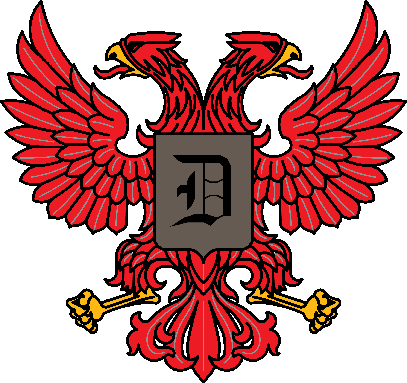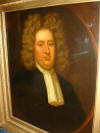

 William Dunlop, the elder ( 1649?-1700),
born about the middle of the seventeenth century, was son of the Rev. Alexander
Dunlop, minister of Paisley. Both his parents had suffered imprisonment during
the turmoil of the English civil war and subsequent religious conflict in
Scotland. The family had a wide and close connection with the more prominent
presbyterians, and Dunlop devoted himself to the ministry, becoming a licentiate
of the Church of Scotland. He was also tutor in the family of Lord Cochrane. A
few days before the Battle of Bothwell Bridge, he was employed to carry to the
army of the Duke of Buccleuch and Monmouth a declaration of the complaints and
aims of the more moderate presbyterians.
William Dunlop, the elder ( 1649?-1700),
born about the middle of the seventeenth century, was son of the Rev. Alexander
Dunlop, minister of Paisley. Both his parents had suffered imprisonment during
the turmoil of the English civil war and subsequent religious conflict in
Scotland. The family had a wide and close connection with the more prominent
presbyterians, and Dunlop devoted himself to the ministry, becoming a licentiate
of the Church of Scotland. He was also tutor in the family of Lord Cochrane. A
few days before the Battle of Bothwell Bridge, he was employed to carry to the
army of the Duke of Buccleuch and Monmouth a declaration of the complaints and
aims of the more moderate presbyterians.
In 1682, in a bid to find greater freedom, he emigrated to Carolina in North America, where he remained till after the revolution of 1688. As well as a colonist, he combined the functions of soldier and chaplain, becoming major of a regiment of militia. On his return from America he got the offer first of an appointment as minister of Ochiltree, and second of the church of Paisley. However he declined both of these offers.
In 1690, Dunlop accepted the appointment of Principal of the University of Glasgow. He was offered the post by a grateful King William, after Dunlop had help to expose a conspiracy against the King. As Principal he was distinguished by his zealous efforts on behalf of the University, for which, in its dilapidated condition, he succeeded in getting a little aid from the King. In this his family connections with Carstares was vital. He was also successful in obtaining funds from the Parliament in Edinburgh.
 Dunlop continued to take a lively interest in the Church. After
his appointment as Principal he received ordination, and the position of a
minister of Glasgow without charge or emolument. In 1694,
he was commissioned by the general assembly, along with Mr. Patrick Cumming,
minister of Ormiston, to congratulate the King on his return from the continent.
In 1695, he prepared an address to the King on the
death of the Queen. As a further mark of royal favour he was appointed
historiographer for Scotland in 1693.
Dunlop continued to take a lively interest in the Church. After
his appointment as Principal he received ordination, and the position of a
minister of Glasgow without charge or emolument. In 1694,
he was commissioned by the general assembly, along with Mr. Patrick Cumming,
minister of Ormiston, to congratulate the King on his return from the continent.
In 1695, he prepared an address to the King on the
death of the Queen. As a further mark of royal favour he was appointed
historiographer for Scotland in 1693.
Dunlop's experiences in Carolina led him in 1698, to become heavily involved in the disastrous Darien Scheme to set up a Scottish colony in Panama. He became a director of the Darien Company, and under Dunlop's advice the University invested a large sum in the scheme. However after the successful establishment of a town, named New Edinburgh, the hostile climate and lack of supplies of every kind, took a terrible toll on the health of the colonists. The ships which arrived, in 1699, with fresh men and supplies found a deserted town, and disease, dissension, and a Spanish claim to the land sealed the colony's fate. The anxiety over the colony, and loss not only of his investment, but also the University's, may have contributed to Dunlop's early death, on 8 March 1700. The University did recover the funds it had invested, in 1708, through Dunlop's son, Alexander, Professor of Greek.
Dunlop had two sons, Alexander, Professor of Greek in the University of Glasgow, and William, Professor of Church History in the University of Edinburgh.
Dunlop was the cousin and brother-in-law of Carstares, the King's chief advisor in Scottish affairs.
List of sources for the biographical information:
Coutts, James, A History of the University of Glasgow: 1451 to 1909, (Glasgow, James Maclehose & Sons, 1909)
Harrison, Brian (editor), Dictionary of National Biography, (Http://www.lib.gla.ac.uk/Resources/Databases/d.shtmlOxford University Press, 1995)